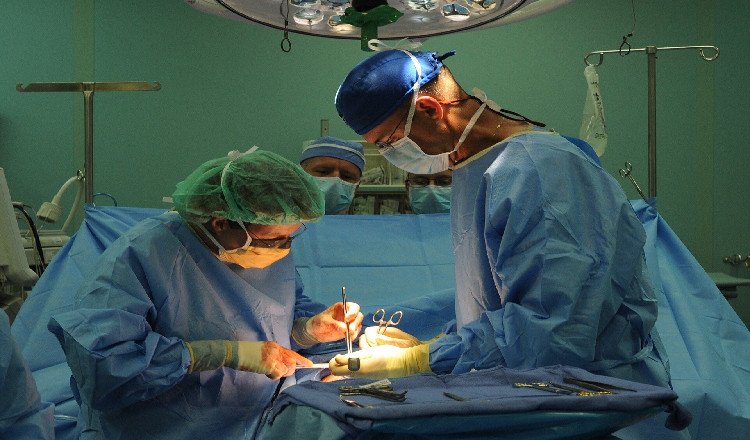
Recent research conducted by the University of Bristol Medical School and published in the British Journal of Surgery has determined that there is no discernible variance in recovery time and complication rates between standard and keyhole surgical techniques for treating esophageal cancer. Surgeons treating this condition need not alter their preferred surgical approach based on these findings. Esophageal cancer ranks as the tenth most prevalent cancer globally and is responsible for one in 18 cancer-related deaths. Typically, when only the esophagus and local lymph nodes are affected, surgeons perform an esophagectomy to remove the esophagus in an attempt to cure the cancer. The study, known as ROMIO and funded by the National Institute for Health and Care Research (NIHR), involved randomly assigning patients to either standard surgery (263 individuals) or keyhole surgery (264 individuals).
Researchers observed no distinctions between the groups concerning:
* Recovery three months post-surgery, as assessed through patient-completed questionnaires regarding physical function.
* Incidence and severity of postoperative complications.
* Efficacy of cancer removal, with both approaches showing equal effectiveness.
Chris Metcalfe, Professor of Medical Statistics at Bristol Medical School: Population Health Sciences (PHS), commented, "Our study did not corroborate previous trials suggesting that minimally invasive esophagectomy decreased complication rates. We found no discernible differences in short-term clinical outcomes or patient-reported physical function recovery over three months between standard and keyhole approaches. Moreover, there was no substantial evidence indicating variations in NHS resource costs during the initial three months between the two techniques. We plan to report on the longer-term recovery (24-month follow-up) and the health status of ROMIO participants in a separate publication. Additionally, findings from a nested study on entirely keyhole surgery will be published.

ഇന്നത്തെ നമ്മുടെ സാമൂഹിക- രാഷ്ട്രീയ-പൊതുജനാരോഗ്യ കാഴ്ചപ്പാടുകളുടെ പാളിച്ചകളെ കുറിച്ചാണ് നിപ പോലുള്ള രോഗങ്ങളുടെ ഇടവിട്ടുള്ള സന്ദർശനങ്ങൾ നമ്മെ ഓർമ്മിപ്പിക്കേണ്ടത്.
ഡോ. എം. മുരളീധരൻ
15 Sep 2023
ഇന്നത്തെ നമ്മുടെ സാമൂഹിക- രാഷ്ട്രീയ-പൊതുജനാരോഗ്യ കാഴ്ചപ്പാടുകളുടെ പാളിച്ചകളെ കുറിച്ചാണ് നിപ പോലുള്ള രോഗങ്ങളുടെ ഇടവിട്ടുള്ള സന്ദർശനങ്ങൾ നമ്മെ ഓർമ്മിപ്പിക്കേണ്ഡോ. എം. മുരളീധരൻ
Recent research conducted by the University of Bristol Medical School and published in the British Journal of Surgery has determined that there is no discernible variance in recovery time and complication rates between standard and keyhole surgical techniques for treating esophageal cancer.
Countries with the highest number of domestically trained medical doctors working abroad in an OECD country*
Metabolic syndrome in children with overweight and obesity: a hospital based cross sectional study
Madhava Vijayakumar , Ajitha Balakrishnan , Sabitha Sasidharan Pillai
Researchers at the University of Queensland have discovered a significant correlation between delirium in older patients and the likelihood of developing dementia, with those experiencing delirium being three times more likely to develop dementia.
We have various options to advertise with us including Events, Advertorials, Banners, Mailers, etc.